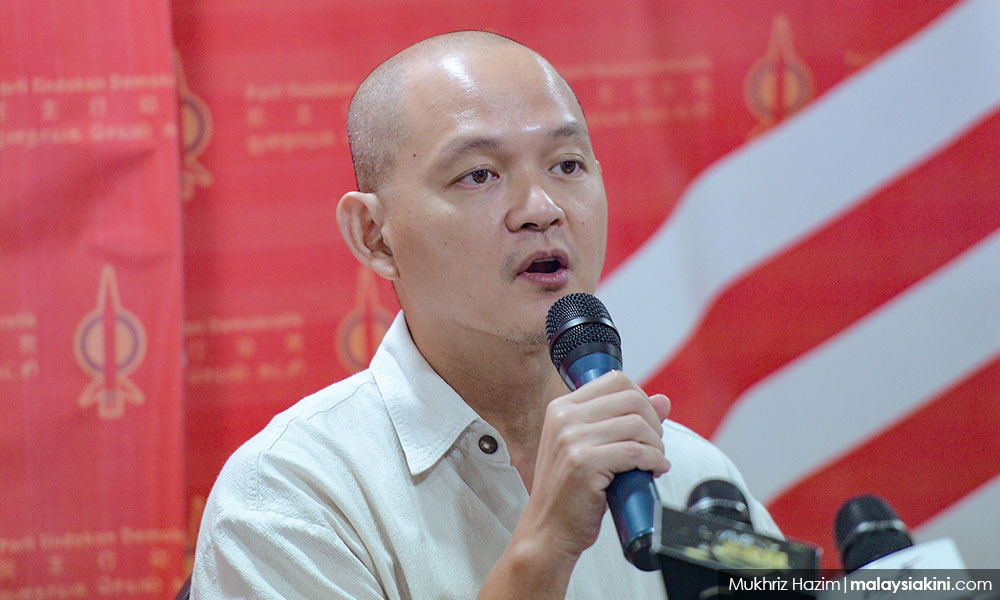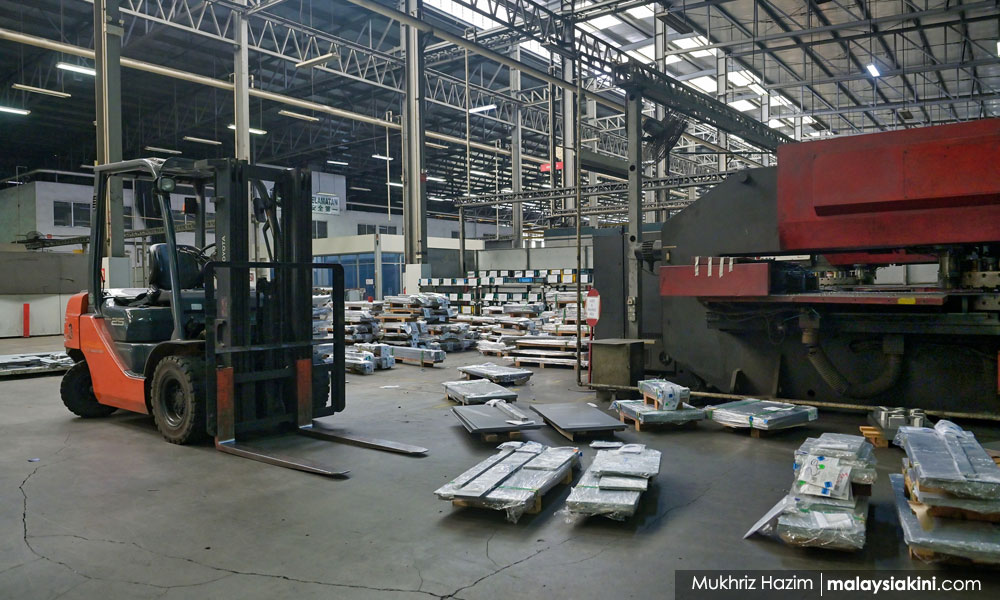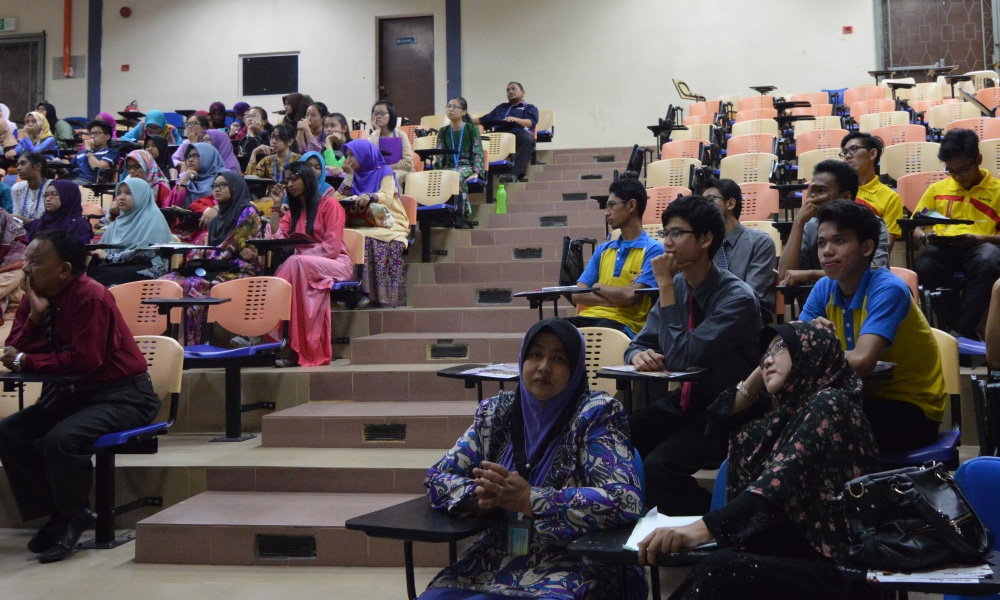MP SPEAKS | On Sept 12, I was invited to share my thoughts as a panellist at the KL Venture Finance Forum 2022, organised by Malaysian Debt Ventures (MDV) together with fellow panellists Shahril Hamdan, economic adviser to Prime Minister Ismail Sabri Yaakob and Taufiq Iskandar, CEO of Penjana Kapital.
I shared the following points on what the government has done well in giving a boost to the private equity (PE)/venture capital (VC) ecosystem over the past two years, as follows:
The launch of Penjana Kapital in July 2020 and the Dana Penjana Kapital matching fund gave a boost to the local PE/VC landscape, helped bring in foreign PE/VC funding and increased funding to companies in the technology and digitalisation sector when companies in Malaysia were undoing a rapid digitalisation process due to Covid-19.
This was indeed a prescient move by the Finance Ministry during a time when the global appetite for funding companies in the digital space and the availability of foreign capital was very high.
The structuring of Penjana Kapital as a Fund of Funds (FoF) rather than a direct investor was also a good move in building capacity in the local PE/VC landscape rather than having to invest significant resources internally to disburse and manage these funds directly.
The tapping of the existing start-up and technology development ecosystem in Malaysia (including agencies such as Magic, Cradle and Mdec) to work together with Penjana was also a welcomed strategy of working across ministries and agencies instead of working within silos.
I would also include the decision to merge the Malaysian Global Innovation and Creativity Centre (Magic) with Technology Park Malaysia (TPM) to form the Malaysian Research Accelerator for Technology and Innovation (Mranti), two agencies under the Science, Technology, and Innovation Ministry as a positive move to help develop synergies and enhance the government’s capabilities in the technology and start-up ecosystem.
At the same time, I also shared a few suggestions on how the PE/ VC investing ecosystem in the country can be further enhanced. These suggestions include as follows:
Catalysing new investment opportunities in the environment, social and governance (ESG) as well as the impact investment space.
With many multinationals and global funds emphasising ESG-related business and investment strategies, it makes sense for Penjana Kapital to launch a new fund targeting ESG-related investment opportunities, especially since Dana Penjana Kapital’s target of RM1.2 billion in funding has been reached (and indeed exceeded).
The size of the global market for ESG-related funds is immense. One estimate puts the inflow of capital into ESG-related funds in 2021 at the global level at US$500 billion (RM2.2 trillion).
A subset of ESG-related investments is impact investing which seeks to invest in sustainable businesses that can also generate positive social and environmental externalities. This kind of investment opportunity has been growing in Malaysia.
Since ESG-related opportunities can be broadly defined, it may make sense for Penjana Kapital to focus on certain themes where companies in Malaysia and Asean would have a comparative advantage in areas such as renewable energy, health technology, manufacturing technology and smart agriculture.

Bangi MP Ong Kian Ming Create and enhance a new narrative of investment opportunities in Malaysia.
Foreign capital looking to deploy and invest in a country like Malaysia is looking for “selling points” which differentiate us from other countries in the region.
We must go beyond the narrative that we are a cost-effective place to do business (compared to Singapore, for example) with competent domestic skilled workers. We need other fresh narratives to tell a more compelling growth and opportunity story.
For example, we can sell Malaysia’s diversity in terms of industries, markets, language, ethnicities and customs as a good launch bed for new technologies and applications which can then be refined and rolled out to other countries.
An example could be health technology for human resource monitoring and management systems for foreign workers in the country using multiple languages on a single easy-to-use platform.
We can also look into halal food franchise concepts which can be tested and then launched in Muslim majority countries around the world. Or drone-mounted visual inspection technology to check for soil erosion and optimise harvesting times for agricultural products such as durian and commodities such as palm oil.
To overcome the narrative that we are short of workers, we should emphasise the availability of skilled workers who are trained in our public and private institutions of higher learning, including those in technical and vocational institutions.
We should also not forget the availability of foreign students who come to Malaysia to pursue tertiary education opportunities across different fields in both public and private institutions.

However, to allow these narratives to come to fruition, we need a mindset shift in the government, be it politicians, executives at the federal and state levels and even among the senior management team in government ministries and agencies.
Inculcating a spirit of policy facilitation within government ministries at the federal and state levels.
To significantly increase the opportunities for value-added activities in investments in Malaysia, we need to have all ministries and agencies adopt a more innovative and inclusive approach toward policy facilitation.
This entails being proactive in thinking ahead on how policies can be introduced and updated to facilitate the private sector in creating value in a sustainable and responsible manner.
For example, the Environment and Water Ministry, together with the Sustainable Energy Development Authority (Seda), must come up with policies to encourage the setting up of solar farms on water bodies such as dams, lakes and shores.
With the cooperation of the state government, this can lead to an easier deployment of private capital in the renewable energy investing space (Singapore already has floating solar farms).
Another example, the Home Ministry and the Human Resources Ministry should allow foreign students who have studied in local colleges and universities the opportunity to apply for work visas straight after they graduate, as opposed to having to gain sufficient experience in other countries before they are eligible for a work permit to work in Malaysia.
This would allow local employers to hire fresh and skilled graduates from diverse backgrounds and with diverse skill sets and experiences. Having access to more diverse skilled labour would allow different value-added business opportunities to be created.
Who knows – some of these talents may be used by our companies to enter into foreign markets where these students come from, be it in Southeast Asia, South Asia or Africa.

For starters, the International Trade and Industries Ministry could arrange for public briefing and pitching sessions by service providers used by the manufacturing sector in the automation efforts, which are part of the Industry 4.0 masterplan so that potential PE/VC investors can have an opportunity to spot good companies to invest in.
These are just some examples to illustrate the importance of government policy facilitation which can significantly enhance the PE/VC investment opportunity space.
I have seen many other opportunities during my time as deputy international trade and industries minister and even now, during my interactions with business owners and PE/VC investors.
If done well, Malaysia can easily find itself as a new hub of PE/VC capital deployment across different economic sectors in Southeast Asia. - Mkini
Ong Kian Ming is Bangi MP and a former deputy minister of international trade and industry.
The views expressed here are those of the author/contributor and do not necessarily represent the views of MMKtT.




No comments:
Post a Comment
Note: Only a member of this blog may post a comment.